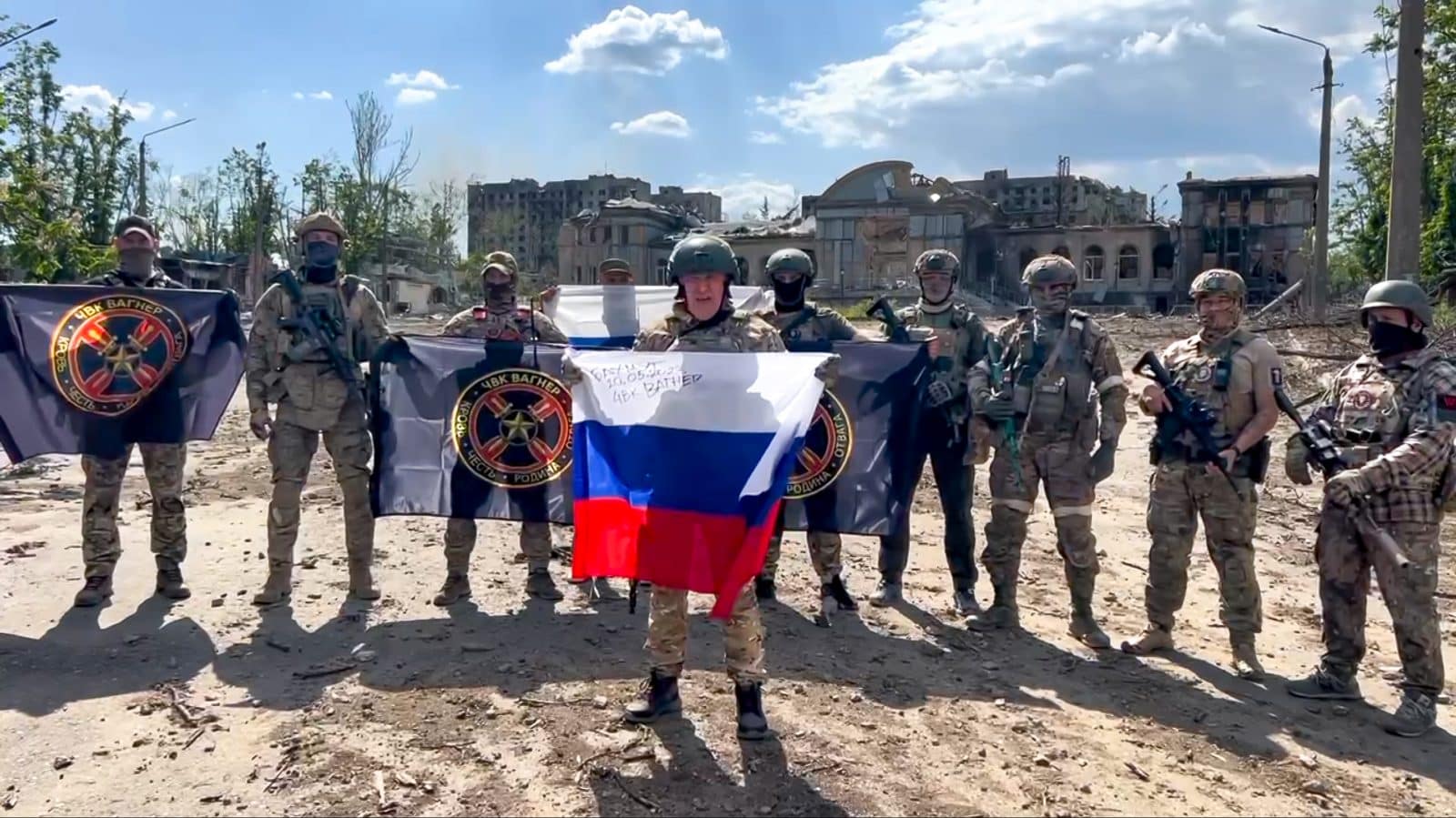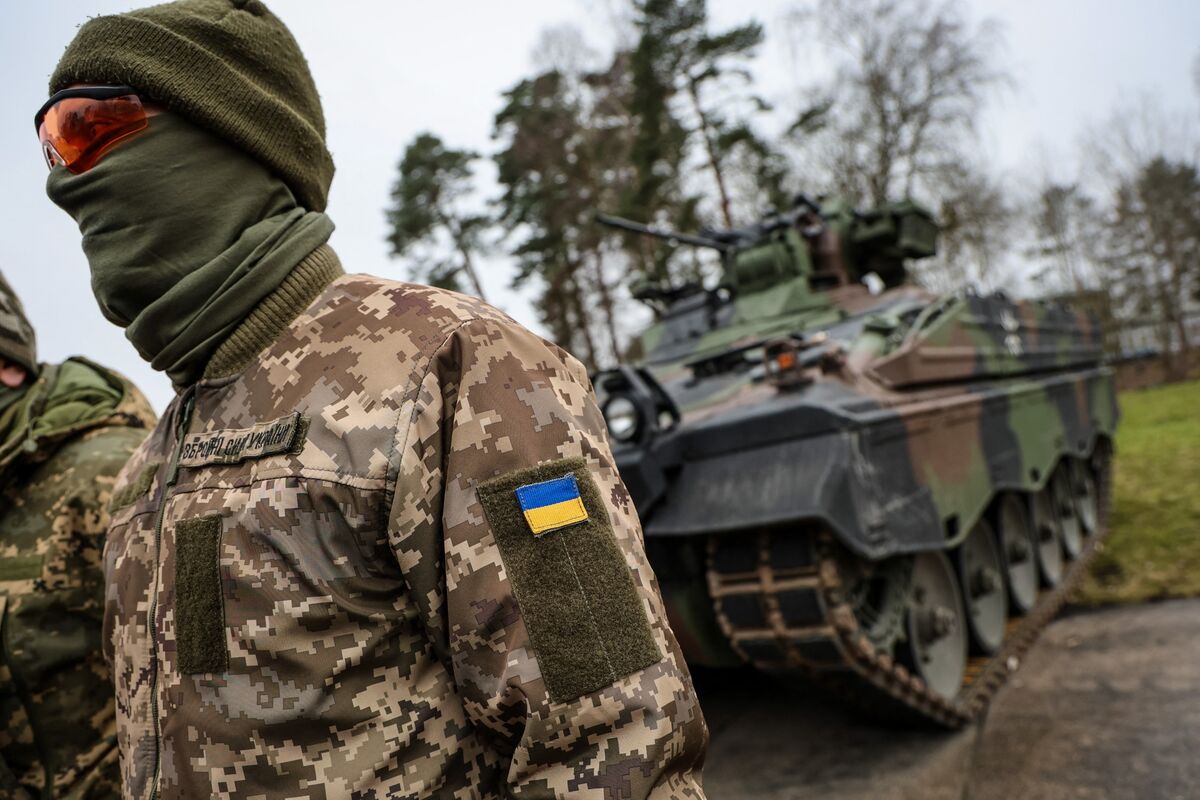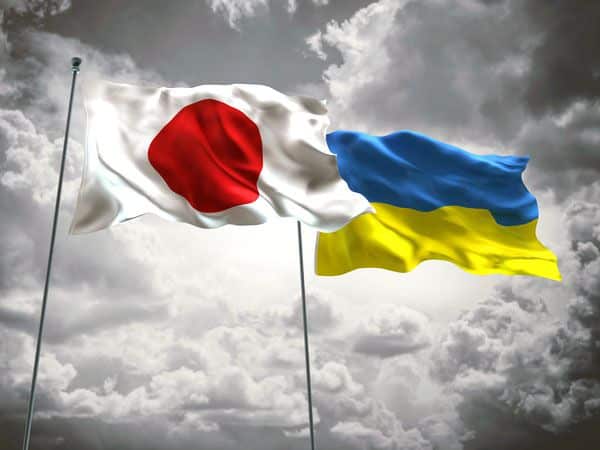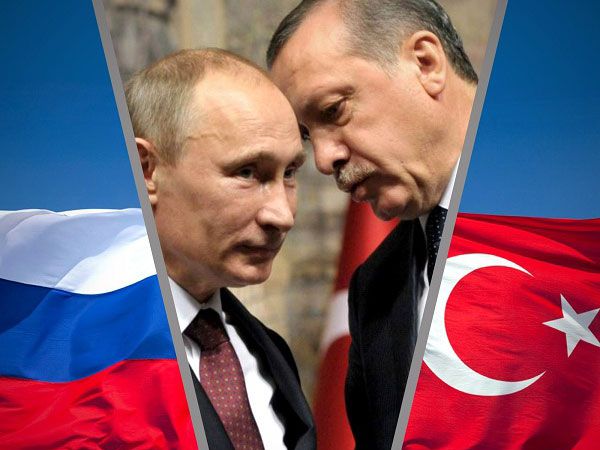Glavcom (Ukrainian media outlet) spent several hours in a strict regime corrective colony in Dnipro.
The criminal group Wagner Private Military Company (PMC), which fights as part of the Russian armed forces on Ukrainian territory, is already known worldwide for its brutality and lack of principles. Glavcom had the opportunity to speak with two representatives of this formation. Both are held in a strict regime corrective colony in Dnipro.
Today is an inspection day in the colony — the guards are conducting a search of all personal belongings of the inmates. We have to wait at the gates until the search is over and visitors are allowed to enter. While waiting, we talk to a representative of the Security Service of Ukraine, who accompanies us to the captured Wagner fighters. The officer of the Security Service of Ukraine deals with Russian captives and has extensive experience in communicating with them. Recently, on Easter, Ukraine exchanged 25 Wagner members from this colony — all of them were convicts who were sent to the front directly from Russian prisons. They were exchanged, even though none of them had written a request for an exchange.
The prisoners told their stories of being recruited to Ukraine. Two weeks before the “agitators” from Wagner were supposed to arrive, the conditions of detention in the Russian zone deteriorated: cafes and shops were closed, nothing could be bought with their own money, they were fed potatoes intended for feeding deer, and given fish like tulka (clupeonella), which smelled very bad and was impossible to eat. Even the experienced prisoners have never seen such a thing.
Recruitment takes place in all Russian prisons. Out of approximately 1,100 inmates, around 200 show interest. Once the recruitment process is complete, the cafeteria reopens, and normal feeding resumes. Meat appears in the soup again.
Once you agree, there’s no way to refuse. Although during the initial wave, it wasn’t as strict as it is now. According to accounts, several individuals mentioned that when they expressed a desire to refuse to go to war, they were beaten by the prison guards as a show of force. If an inmate expresses a desire to refuse, he is given a package of ten sheets of paper to sign. According to those papers, each person will receive an additional ten years added to their sentence if they refuse. Only after that, they are given a contract. Afterwards, the prisoners are transported from all corners of Russia to Rostov, where they are herded into hangars and changed into military uniforms. They receive all other equipment at the training ground.
In Russian prisons, 30% and sometimes even 40% of inmates are HIV and hepatitis patients. However, they don’t care about it in the Wagner Group. They simply put rubber bracelets on their wrists. Red for HIV, white for hepatitis. They are now forming a separate battalion with such patients, and they will no longer mix with others.
However, in Wagner, they are provided with the necessary medications. But according to Russian prisoners of war, in Ukrainian prisons, they receive better therapy and feel better than in Russian prisons.
The captured Wagner fighters from the first wave are not afraid to return home from captivity, but as for those who were recruited later, not all of them want to go back because they are uncertain about the fate of those who have already been exchanged. They also have no desire to return and fight on Ukrainian ground because the losses are very high. Each Wagner member tells that only about thirty or even fewer remain out of their group from the colony, which is about 200 people.
The losses among Russians are greater than among Ukrainians. This can be explained quite simply — Russians constantly try to advance and resort to storming tactics, while the Ukrainian side employs a more defensive strategy.
One Wagner member reveals that they can lose two hundred people in a single day. And when they end up in captivity, they consider themselves very fortunate.
Prisoners are now a highly profitable resource for Russia. By involving them in combat operations, they are simply utilized. The sentences for the same crimes in Russia are twice as long as in Ukraine.
There is a wide variety of individuals among the prisoners. There are those who are extremely unintelligent, referred to as “camels.” They are used as labor and carry backpacks with two ammo belts to the frontline. They also transport the injured. They also assist in carrying food. Similarly, they involve such individuals in evacuation groups for the injured.
When there are massive losses, no one bothered to evacuate the dead. The Wagner men who were recently released, from the later waves, said that they had mobile crematoria and personally brought their bodies there and threw them into the oven.
As for Ukrainian troops, they say that the Russians sometimes bury them on the spot in some kind of funnel, sometimes take them to an exchange fund, and sometimes they don’t even pick them up at all, and the bodies continue to lie on the ground.
Wagner members are prohibited, under the threat of death, from communicating with regular Russian military personnel. Overall, the supposed success of the Wagner Group is attributed to strict discipline within the formation. At the very least, individuals are subjected to severe beatings, and often they are simply executed. Recently, as punishment, one Wagner member had his helmet and body armor removed, was handed a grenade, and sent to an assault alongside others. However, he managed to survive.
There are four rules in the Wagner Group: no looting, no violence against civilians, no alcohol or drugs. Violating these rules results in execution. However, not everyone adheres to them…
The concept of morality does not exist among the Wagners. They have their own task — to survive. Most of them surrender themselves. It happens that they have been under fire for a long time, their commander abandoned them, no one gets in touch on the radio, and they decide to surrender to Ukraine.
Finally, we enter the territory. We are given a separate room and the prisoners are brought in one by one. Before that, they give us hand sanitizer and ask us to touch everything as little as possible.
Interview with Ruslan Karimov Ramilevich
The first to enter is Ruslan Karimov Ramilevich, 42 years old. He served his sentence in Chelyabinsk, as he explained, for the acquisition and use of drugs. For this, he received 11.5 years in a strict regime corrective colony. He belongs to the second wave of prisoners who were recruited by the Wagner Private Military Company. He has two bracelets on his hand — red and white. His voice is hoarse. This is due to a throat injury he received during the Chechen War. He has the status of a combat participant and currently receives a pension of 3,200 rubles. He was also given a piece of land, but he refused it because it turned out to be just… a swamp.
“What are you doing here?” we ask.
I was captured. I was held in a camp when representatives of a Private Military Company (PMC) came and said that there would be a full pardon if I signed a six-month contract. I signed the contract. I went through the medical examination, pull-ups, and push-ups. They took 9 out of 30 people from the camp. We were brought to Rostov by plane. The preparation took three weeks: shooting, working in teams of three, assault training, well, grenades, and practicing stretches.
How did they convince you to sign the contract?
I was doing time in prison for one and a half years, and I had ten years left. Since I have fourth-stage HIV, I can live a maximum of four more years.
How long did you stay on the front line?
We were brought on January 10th, and on February 11th, I was captured. I didn’t even reach the position. They started shelling with mortars, and everything scattered. As a result, I spent a day under mortar fire trying to crawl out, but I got shot in the hand and was captured.
Do you have a family?
I have two daughters. The last time I was in touch with them was in January.
You signed a six-month contract. What was supposed to happen after six months?
Complete freedom. A clean slate.
Are there any examples of people who completed the six months?
Yes, there are examples of people who have completed the six months.
There were rumors around the camp, but it was just word of mouth. I never encountered anyone like that.
How much were you paid?
They said they would pay a hundred thousand upon arrival and a hundred thousand upon departure. But I wasn’t chasing after money; I was chasing after freedom.
Do you consider it justified to go and kill other people just because you want freedom?
No. I was told there would be the evacuation of the injured, and patrols in Donetsk and Luhansk. They are now part of Russia.
But you were trained to shoot.
I know how to shoot because I participated in the Chechen War in 1999 during my compulsory military service. Internal troops, communications.
Did you manage to kill anyone?
Here — no. But it happened there.
And how many?
I don’t remember, I’m trying to forget about it. I’ve almost forgotten.
Is it prestigious to be in the Wagner Group?
Well, I’ve heard about Wagner through rumors. We were immediately told that killing civilians, looting, and rape result in immediate execution.
Well, do you know that members of your group are known for their cruelty, right?
Well, I’ve heard that there were assaults, they captured prisoners and killed them. But I didn’t even reach the position. There was a five-day deployment, then we were sent at night. We first came under sniper fire, one guy got hit, and the guide refused to proceed. We went back, and another guide led us, and we came under mortar shelling.
What was the mission?
To reach the position, and everything would be explained there.
Do you agree with the idea that Russians like you should only be killed, otherwise they won’t stop?
I can’t answer that question. I’m already confused about all of this. But for myself, I’ve decided that this is it.
Do you want to be exchanged? They say that people don’t return home from captivity…
Of course, I want to. Yes, I’ve heard that. We’ll see how it goes.
Did they pay you the hundred thousand upon arrival?
I’m not aware of that either. They were supposed to transfer the money to my daughters through a power of attorney.
How are you treated here in Ukraine?
Decently. The medical care is good, and the food is decent.
And compared to the prison in Russia?
Well, Russia is home. Home is always better. I was in a strict regime, in the black zone. You had to find common ground with everyone there.
How do other prisoners feel about those who go to fight with Wagner?
At first, they would say that they were informants, working with the operatives. But I was already leaving for the second time, and communication started to improve… The first group had 180 people.
Did everyone survive?
I don’t know, their fate is unknown.
Are you satisfied that you signed the contract?
Honestly, if I had known it was for an assault, I wouldn’t have signed.
Who was your commander?
I never saw my commander, I didn’t even reach the position. The guide was supposed to lead us to the position.
You have two bracelets. Are there many like you?
In the prison, yes, quite a few. I’ve heard that now they have a separate unit in Wagner for those with bracelets. About one-third or one-fourth of the people have them in prison.
See also: Ukraine is not Vietnam: why Russians are willing to kill “their boys” endlessly
Interview with Shingiz Sibiev Kanatovich
The second Wagner member enters the office, Shingiz Sibiev Kanatovich. He is 25 years old. He originally came to Russia from Kazakhstan. He belongs to the first wave of recruits and was recruited into Wagner at the end of October 2022.
I came to visit my sister, and met one guy, we were hanging out, back and forth, and decided to have a drink. He started insulting my sister, and I hit him once, and he fell. He hit his head on the curb and died. I was sentenced to 10 years in a strict regime corrective colony No. 2 in Tyumen.
How long have you been in prison?
I was doing time for two years and then came to the Wagner Private Military Company. They convinced me to go to the territory of Ukraine, fight for six months, complete my service, so to speak, get a pardon certificate and a salary — a hundred thousand for combat and another hundred as a regular salary.
Who did the recruiting?
Two guys came and introduced themselves as being from Wagner. They organized a meeting in the courtyard of the institution and started talking about the territory of Ukraine, that there was a war going on and they needed guys who would fight.
Who is fighting against whom?
Russia is fighting against Ukraine. They gave us 15 minutes to think. They didn’t take rapists or those who were considered “lower сlass” such as janitors. They told us that 50% come back, 15% are injured, and 35% are killed. Those who agreed approached, signed up, and went through an interview. Two hundred of us from the corrective colony were taken. We were transferred to improved conditions in separate barracks so that we wouldn’t mix with other prisoners. About a hundred people left the institution. Some refused, some didn’t pass the requirements, and for those who were under 22, their parents started protesting.
Was there anyone whose parents allowed them to go to war?
Yes, there was one guy whose parents gave permission. He flew with us to Rostov. After that, I didn’t see him anymore. We were all separated. On November 18, 2022, we were transported by vans to the airport, where we were loaded onto an IL-76 aircraft, and we flew to the Rostov region. There, we changed clothes in hangars.
Was everything of Russian origin?
Yes, the labels said “made in Russia.” We were given new clothes and loaded onto buses. We traveled for about 3-4 hours. We arrived at a transit point called “Druzhba” as we were told. We were unloaded, fed, and then they started issuing call signs, token numbers, rifles, bayonets, and firearms. After that, we signed a contract with the Wagner Private Military Company. We were loaded onto military Kamaz trucks and headed to a training ground in the Luhansk region. For three weeks, we were taught how to handle rifles, throw grenades, and shoot machine guns. I was simply a rifleman with an automatic rifle. We were trained to move in threes, fives, and groups…
Then we went to the Kreminna village in the Luhansk region. The guys went on rotation to rest, while we stayed at the positions. Artillery fire was coming from both sides, but we didn’t engage in direct combat. We stayed there for 8-10 days.
Then the lists came, stating that we were going to the Yakovlivka village near Soledar in the Donetsk region. There, we took positions and held the defense. Artillery fire was also present. The platoon commander came in and said, “Pack your things, all ammunition. We supposedly have advanced and need to occupy point K1, which was a captured position.” We gathered our belongings, walked about two kilometers, and approached this point K1. We all took cover there, and the guide ran to check the situation. He was gone for 20-30 minutes, so as the senior group member, I went to see what was happening. That’s when they started shooting at me and threw a grenade. I was disoriented. When I regained consciousness, I was already a prisoner of Ukrainian soldiers, and I no longer had my body armor or rifle. Another person was captured with me, but he has already been exchanged and went home on Easter.
Why haven’t they exchanged you yet?
Because I am a citizen of Kazakhstan. They will be prosecuting me on the territory of Ukraine for being a mercenary. I spoke with the prosecutor, and they will sentence me to 9 years, and then I will be exchanged to Russian territory.
When you are released, will you continue to fight?
No, I’m not eager to. My contract ends in 20 days. I want to go home, to my family.
Who were your commanders?
They were also convicts from our and other colonies. The most level-headed ones are appointed as leaders. They are given gadgets and such.
Do you have any ranks there?
There are no ranks.
See also: Failed state
What were the rules for you?
Not to use violence, not to engage in looting, no alcohol, drugs, and not to harm civilians. I didn’t witness anyone doing such things. On the training ground, they brought two people from the front. It was related to something about money. They were executed, meaning they were shot.
In front of your eyes?
Yes. And they said that anyone who engages in looting or rape would face the same fate.
Wagner members are notorious for their cruelty. There are videos where they behead Ukrainian prisoners…
I have seen a video about the sledgehammer. But they say there is evidence to refute that, that it’s all fake.
Are you not afraid of being exchanged? They say that no one has seen those who were exchanged.
I don’t know about those who were exchanged. But the guys who rode home from the front.
How did they boost morale?
They didn’t boost it at all. We boosted it ourselves. I didn’t come here to fight. I was thinking of maneuvering and getting back home as quickly as possible. I didn’t want to spend eight years in prison. They told us that we were actually going for defense. It changed a bit. It turns out we were assault troops.
Did you come into contact with the regular Russian army?
No, we didn’t come into contact with the regular Russian army. But we interacted with the LPR/DPR (Luhansk and Donetsk People’s Republics) and Akhmat special forces unit.
Is your family waiting for you?
Yes, my mother, brothers, and sisters are waiting for me. We communicate through the Red Cross.
Aren’t you afraid to return?
I’ve already prepared myself for whatever happens, will happen. Well, we are already considered part of the Ministry of Defense, and we are on the lists everywhere…
If you had the choice now, would you go to fight?
No. At first, I didn’t appreciate everything. I was influenced by movies. But this is not that kind of war. When I actually came here and saw how the artillery works. I mean, within five minutes, you can die instantly.
Did many of your comrades die?
A fair number. Enough. I can’t give you specific numbers, but I’ve seen guys who didn’t even spend a day on Ukrainian territory. The training ground doesn’t count. We arrived in Kreminna, and the artillery started working on us immediately, and there were injured and killed.
Were you paid money?
No, I will receive payment at the end of my contract because there was no settlement where we could receive money. But the guys said they received it. However, again, it’s just rumors. In reality, nobody has seen the money.
Andriy Tabachchikov Anatoliyovych, an LPR prisoner from the city of Alchevsk, who has been imprisoned since September 1 and is not going to be exchanged, was also brought to the meeting with Glavkom. And in general, as representatives of the LPR/DPR armies themselves admit, they are treated by the Russians like garbage, and they sincerely wonder why? Tabachchikov signed a contract with the LPR army in 2021 because he wanted to get teeth.
When we finally left the colony, there was a strange feeling from interacting with these people. It’s not hatred or anger, just a simple observation: we had conversations with individuals who possess only animal instincts. None of them expressed remorse for being involved in an unjust war. They only regretted their participation because they could have died themselves. If anyone in Ukraine hopes that they will stop interfering here, it will probably only happen out of fear, not because they consider it shameful and criminal.
Originally posted by Oksana Klymonchuk and Yevhen Maksiuta on Glavcom.ua. Translated and edited by the UaPosition – Ukrainian news and analytics website
See also: Aksyonov’s private armies. How Russian-occupied Crimea is preparing for a Ukrainian counteroffensive





